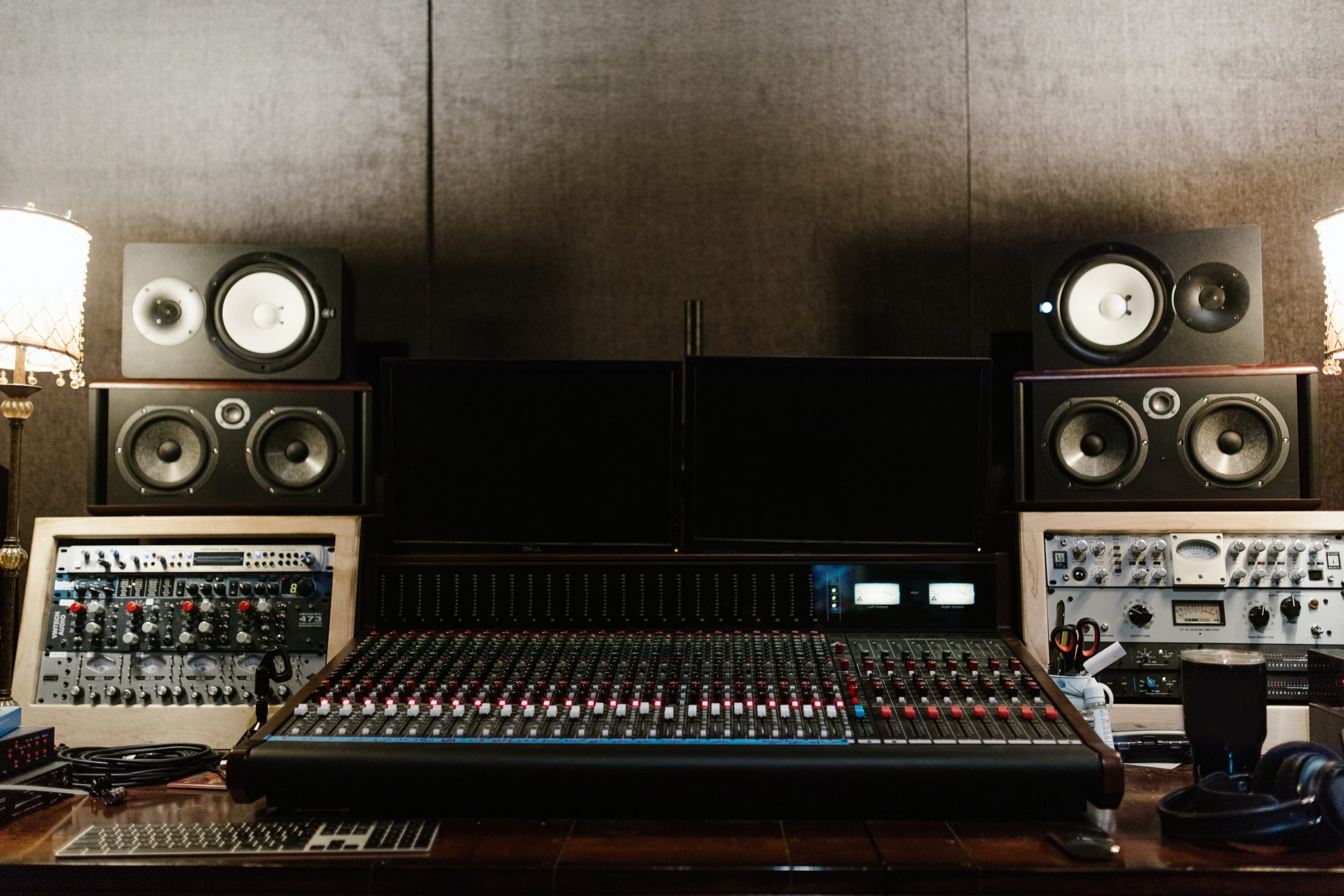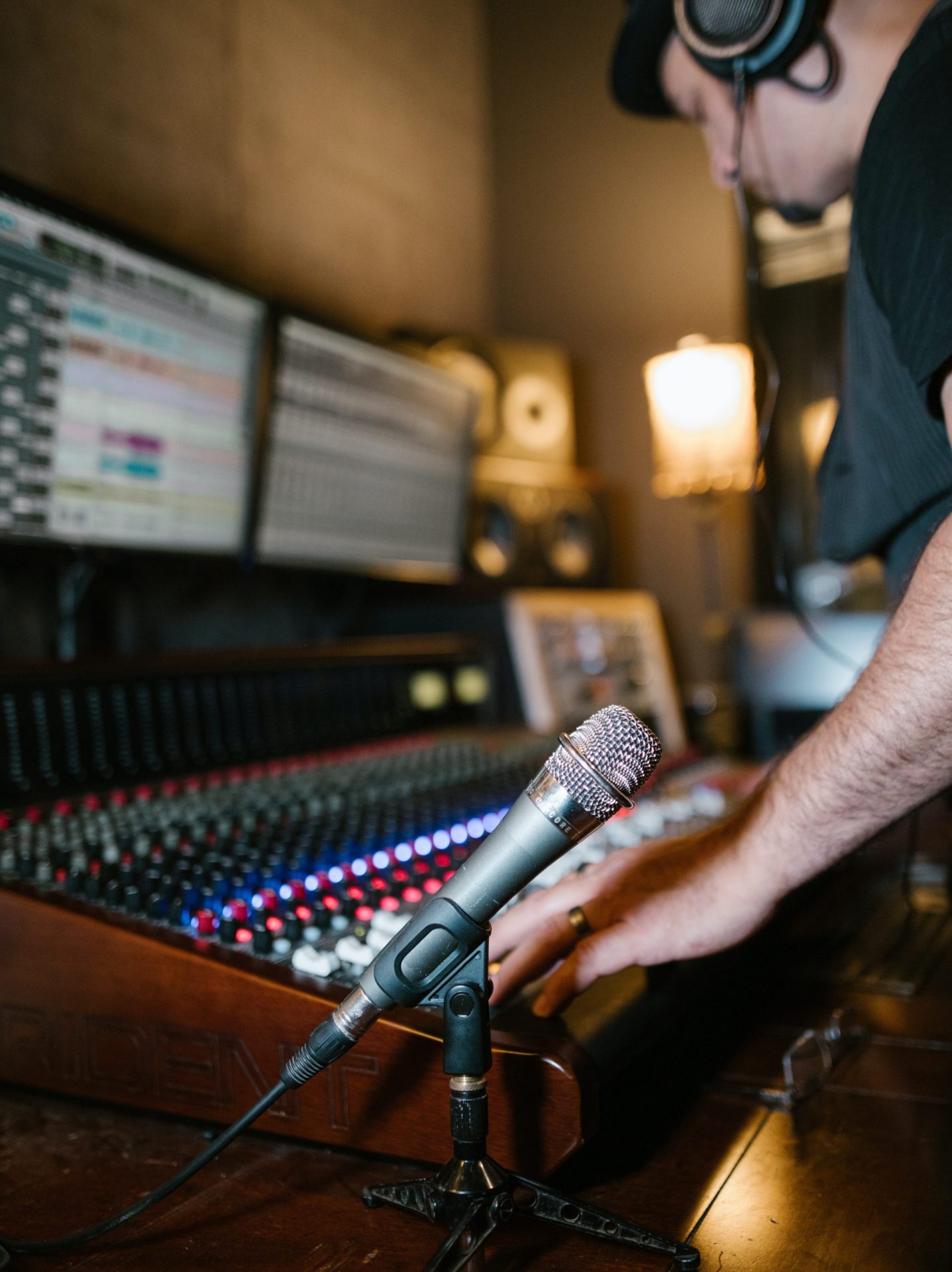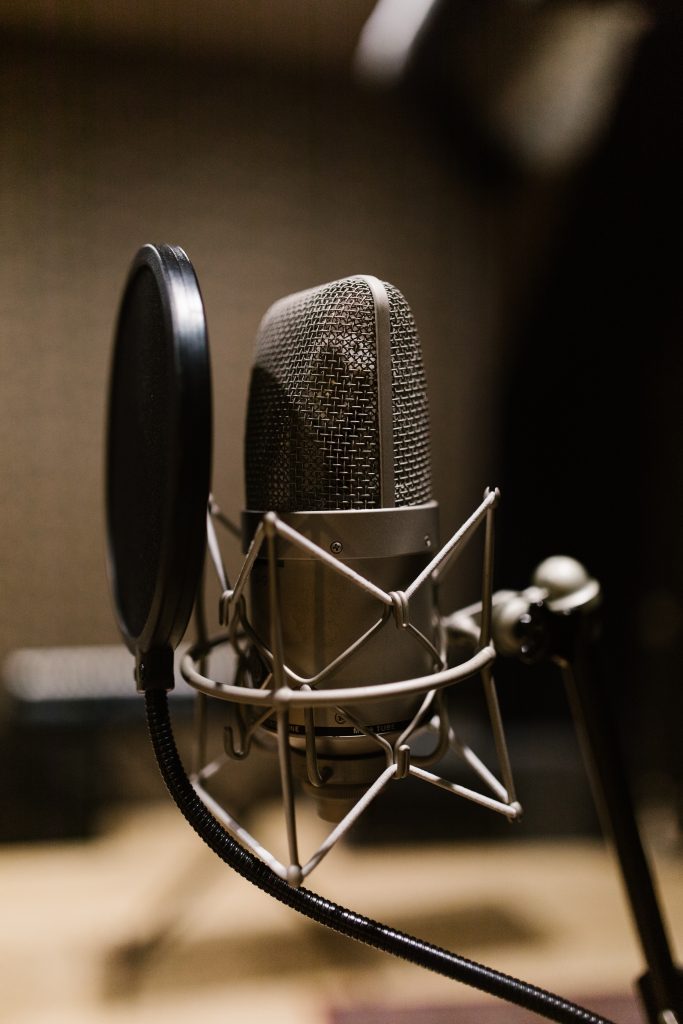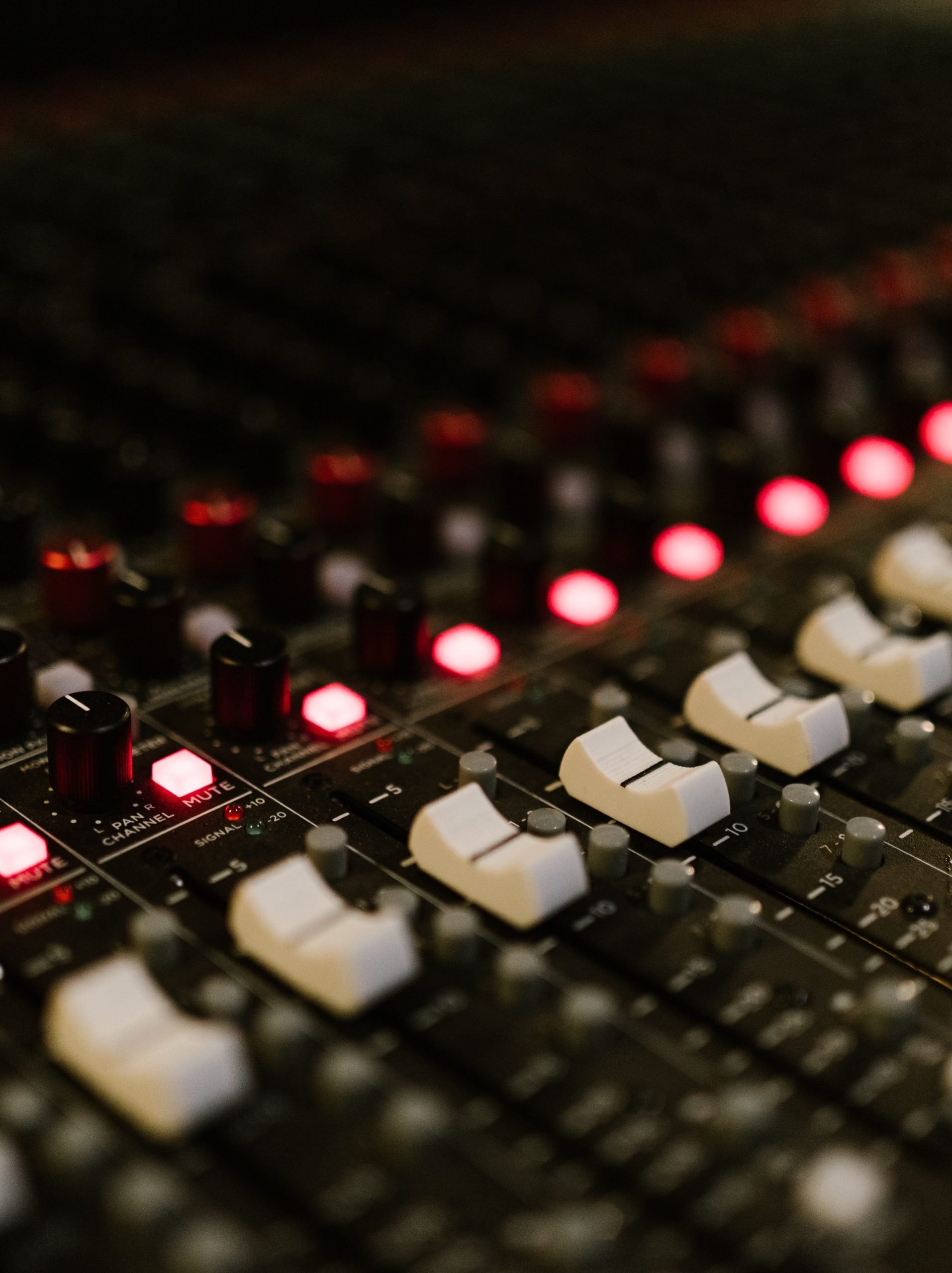
MUSIC PRODUCER
LISTEN.
I WILL TRANSFORM YOUR SONGS INTO AN ALBUM OF KILLER TRACKS
What Is A Music Producer?
The Creative Head Of Music Production
A music producer is the creative and technical person overseeing the music production process. Traditionally, they are in charge of forming an artist’s raw music and talent into a recording that can be marketed to a specific audience. Often, they are hierarchically situated between the record label and the artist and give creative guidance based on the musical vision of the label.

Which Roles Does a Record Producer Fill?
A record producer can take on several roles during the production of a record.
Whilst recording an album in a studio, they work alongside an audio engineer, who supports them by setting up microphones, instruments and equipment according to their vision and guidance.
They will often choose which microphones and which preamps to use, where to set up instruments in a room, and which methods are used to capture the sounds.
Producers often get creative during album production with approaches such as recording drums to analogue tape, using unconventional methods for producing reverb and recording in unusual spaces to achieve a unique sound.

The Financial Responsibilities of a Music Producer
A music producer also has the financial responsibility over the music production process. They must not only ensure that the creative goals of the label are met, but also achieve them on budget.
A producer chooses which accompanying musicians will perform on a record, at which recording studio or location the record is to be produced, and also where and from whom it is to be mixed and mastered.
The Modern Producer Engineer
In the modern music industry, with the DIY and niche approaches that have emerged over the past 20 or so years, the definition of a music producer as become more ambiguous.
Pop and Hip-Hop Producers
Anyone involved in music production, yet not directly creating the music can call themselves a producer. In the genres of pop and hip-hop, the producers are the ones composing and performing the music for singers and rappers.
Indie Rock Producer
However, in the indie and rock segments, a producer is usually someone who is directly involved in shaping the music performed by the artists. They could be a musician who helps shape the music by coaching the band and changing the initial song structures. They could also guide the artists during recording in order to produce better performances.


The Guide For The Entire Audio Production Process
A music producer also will often act as an audio engineer, taking over the complete audio production process from start to finish. They can get involved during the pre-production process, guide the recording stage and then go on to mix the entire album.
A Producer As A Mentor
The main advantage of having a music producer on board for the production of a record is to have a new set of insights coming from outside the band for guidance. With the creativity of an experienced producer it is possible for bands and musicians to lift their performances to the next level. Having a mentor overseeing the process of creating an album from start to finish can help make artistic decisions that increase the musical value of a record.
Famous Record Producers
Quincy Jones
Artists
- Frank Sinatra
- Ray Charles
- Sammy Davis Jr.
- Michael Jackson
- Donna Summer
Rick Rubin
Rick Rubin is known as one of the godfathers of modern hip-hop. As producer, president and co-founder of record companies Columbia and Def Jam Records, he played a central role in popularising hip-hop music and sending it into the mainstream.
As a producer, he worked with a variety of artists from different genres such as metal, alternative and hard rock, country as well as his traditional niche of rap and hip-hop.
Artists
- LL Cool J
- The Beastie Boys
- Slayer
- Public Enemy
- Red Hot Chili Peppers
- Johnny Cash
- Dixie Chicks
- AC/DC
- System of a Down
- The Mars Volta
Also check out this fabulous interview with Rick on the Tim Ferriss Show
George Martin
Artists
- The Beatles
- Jeff Beck
- Little River Band
- Shirley Bassey
- Peter Sellers
Tony Visconti
Artists
- David Bowie
- Tyrannosaurus Rex
- Gentle Giant
- Iggy Pop
- The Stranglers
- Manic Street Preachers
- Morrissey
- Kaiser Chiefs
Brian Eno
Artists
- David Bowie
- Talking Heads
- John Cale
- Devo
- U2
- Coldplay
- Damon Albarn
Jerry Wexler
Artists
- Aretha Franklin
- Led Zeppelin
- Bob Dylan
- George Michael
Let me know about your music!
Tell me about your new album. The more details, the better!
By the way, if you just want to drop me a quick message, you can of course email me instead.

